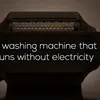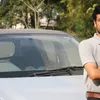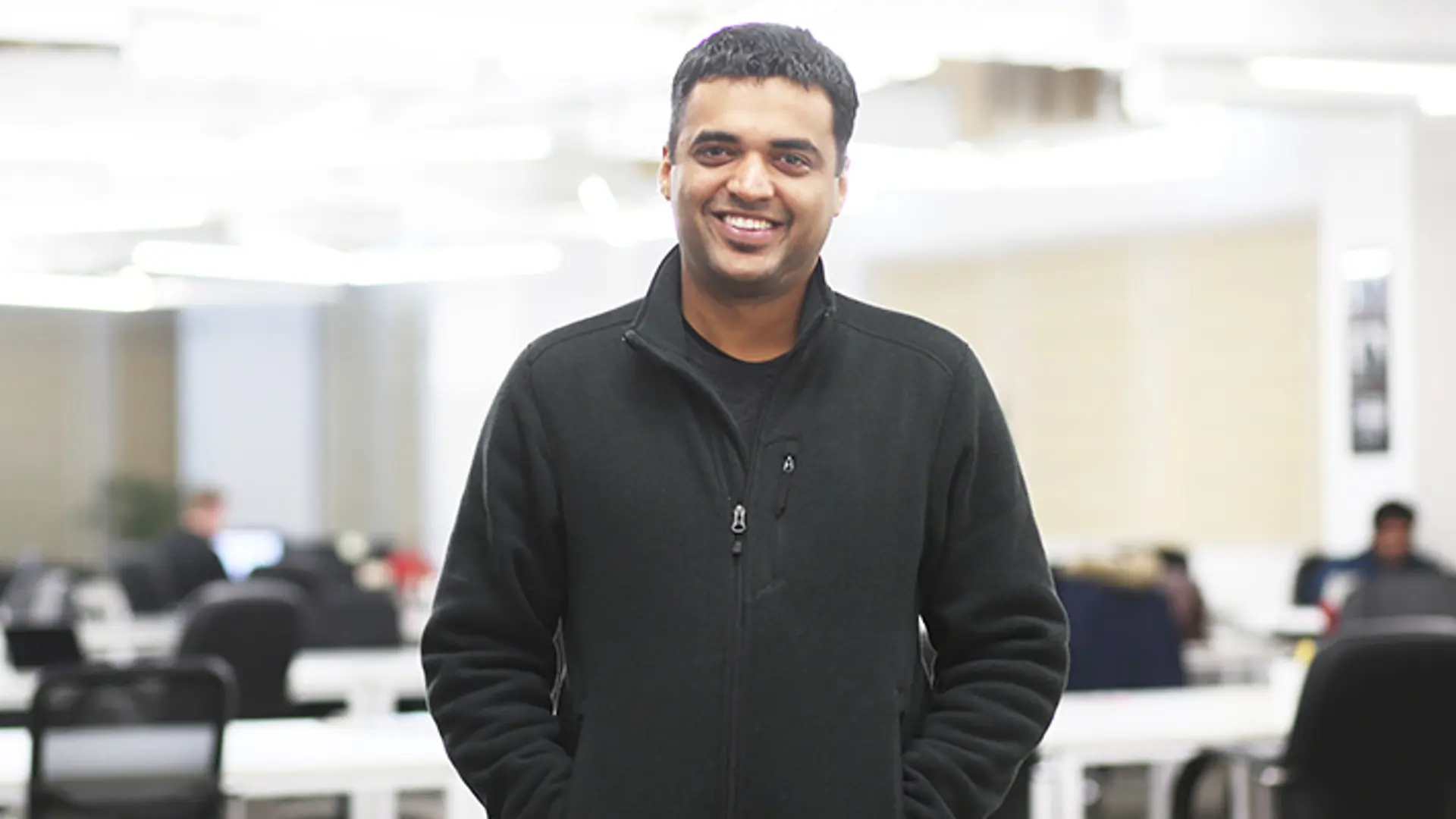No detergent, 80 seconds spin: A nearly waterless washing machine
80Wash has patented an ISP steam technology that uses dry steam and non-ionising rays to clean fabrics using half a cup of water and no detergent. The startup's machine is undergoing pilot trials.
Despite the advancements in modern laundry technology, washing machines take up about 100 litres of water to remove 1 tablespoon of dirt. Also, the wastewater, a concoction of chemicals from detergents and fabric softeners, usually ends up in water bodies, affecting the environment.
One startup, Chandigarh-based is attempting to solve two problems—water wastage and chemical detergent use—with one solution.
Launched by Rouble Gupta, Nitin Kumar Saluja and Varinder Singh, the startup says its machine washes fabrics—and even metal components and PPE kits—in 80 seconds (could go higher depending on the stain) using a few millilitres of water and no detergent.
The machine is based on patented ISP steam technology that kills bacteria (sterilises) using low-frequency (non-ionising and non-polarising) radio-frequency based microwaves, and further removes stain, dirt and odour with the help of dry steam generated at room temperature.
A single cycle of 80 seconds (7-8 kg machine) can wash up to five clothes using half a cup of water and no detergent, the startup says. The cycle can be repeated multiple times in case of hard stains. Usually, about 4-5 cycles can remove tough stains. On the other hand, its bigger machine (70-80 kg load) can wash 50 clothes with 5-6 glasses of water in multiple cycles (depending on the clothes).
Currently, the machines have been deployed across seven places, including hostels, hospitals and salons across three cities—Chandigarh, Panchkula, and Mohali—as pilots to test their commercial viability.

A nearly waterless washing machine developed by 80Wash.
The idea
The seeds of the invention were sown at Chitkara University’s incubation centre, located in Rajpura, Punjab.
In 2017, Rouble was pursuing his Btech in computer science when he met Nitin, associate director at Chitkara University Research and Innovation Network (CURIN), and Varinder, who was working as a project manager at Aautosync Innovations, an automotive centre of excellence at Chitkara.
Nitin and Varinder had worked on several startup projects together and mentored students to help find product market fit. Initially, the trio came together to work on curating an instant sterilisation machine for hospitals using UV rays.
Following a series of discussions and expert opinions, they decided to further develop the machine for fabrics, and build something quick, automated and most important, environment friendly.
However, UV radiations were not enough to clean clothes.
“Mere sterilisation was not enough. The microwaves killed 99.9 percent bacteria but we needed to tackle dirt, stains and smell as well. This is when we started working on our patented technology around dry steam,” says Nitin. The trio got together a team of microbiologists, textile experts among others to work on the proposition.
Dry steam (which is steam with low moisture) is extremely effective in stain removal. However, as the co-founders explain, its generation requires the system to maintain high pressure which further needs high electricity. This makes the whole process extremely risky.
This is where 80Wash team worked on their proprietary technology. “We managed to generate dry steam at room temperature and patented this technology. This hits all four aspects— stains, dirt and smell and germs,” they explain.
By early 2021, the team received their patents, officially launched the startup, and built a 7-8kg load washing machine for pilots. It is looking to apply for an international patent by next year.
The pilots
The startup has outsourced its manufacturing by tying up with certified partners in Ambala and Delhi and has a small garage near the Patiala-Chandigarh highway to carry out experiments. The team operates from Chitkara University’s incubation centre and has offices in Zirakpur and Hisar.
The initial phase of experiments brought out a series of problems that needed to be fixed.
For instance, salons that were part of the experiment complained about hair remaining stuck to the fabrics while hospitals were non-receptive of the machines owing to cumbersome formalities. However, some of them did manage to allow the machine to operate for some time.
“They are happy with the results, but we would still need to get approvals to deploy them officially. We are working on the same for the future,” says Rouble.
On the other hand, university hostels were a perfect ground for experimentation as the students were more open to the pilots. This helped the team gain productive feedback and a source of revenue.
80Wash has deployed a pay-per-usage model and charges Rs 200 per student, per month for unlimited laundry. “This would help us cover some costs to carry on with our pilots,” Rouble adds.
The startup has received grants from the Punjab and Himachal governments, Chitkara University and Ministry of Electronics and Information Technology (MeitY).
It is working on getting its testing certificates, including the electromagnetic interference (EMI) and electromagnetic compatibility (EMC) testing certification. The stamp is mandatory for commercial electronic products.
“The government has been supportive of our product. It is not just about the low pricing or saving time, but also about being friendly to the environment,” says Rouble.

Team 80Wash
Task at hand
The founders say they have received positive feedback on the machine and have even received queries from distributors across a few regions, including Gujarat.
80Wash aims to set up a manufacturing unit in the future, for which the founders will explore partnership options. “Manufacturing is an extremely cost-heavy business and something that we will not explore right away. At present, we are outsourcing our assembling and looking to set up a unit for the same,” the co-founders say.
The pricing of the machine is still being worked out.
Following the certifications, the startup would bring out 100 machines (7-8kg load) by September 2022, followed by 70-80kg load machines for the B2B audience. Work is undergoing for the latter.
“We are not looking at the household audience yet. Our product is designed for B2B commercial usage, including hospitals, hotels, salons, schools and so on. We would explore the launderette where we may set up some card options for customers. We are still exploring the best way to go about this business,” the team says.
As per estimates of BlueWeave Consulting, the Indian washing machine market reached $1.26 billion in 2019 and is projected to grow at a CAGR (compound annual growth rate) of 3.67 percent to reach $1.7 billion by 2026. While the commercial washing machine market is dominated by key players like IFB, LG and Dexter which provide conventional washing and laundry services on scale, startups in the space are trying to fill in the gap by providing comprehensive solutions at a reasonable price, the report adds.
The concept of a “nearly waterless” washing machine has been around for a while. In 2010, media outlets reported about Leeds-based Xeros Ltd, which claimed its machine uses tiny plastic beads that suck up stains. Consumer electronics giant LG had also announced it was working on a “waterless” washing machine a few years back. However, the product failed to reach the market.
LG recently said it has revived the project and is working on it through a regulatory sandbox programme after the Ministry of Trade, Industry, and Energy (South Korea) approved the trial of the technology. LG is working on using carbon dioxide as a replacement for water in washing machines.
“Our technology is completely different from what others (LG) use and is first-of-its-kind. We are not sure how environmentally friendly and quick these other offerings are. Feasibility is a big issue,” says Nitin.
(This article has been updated to correct a sentence regarding the technology used in the washing machine and add the startup's office locations.)
Edited by Affirunisa Kankudti









